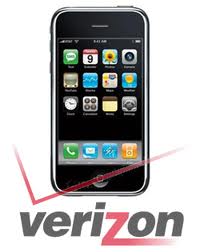Sometimes being popular isn’t the best thing in the world.
When Virgin Mobile introduced an unlimited, prepaid wireless broadband plan in August, it created a small media frenzy and shocked an industry that assumed usage-capped wireless broadband was the only way to survive the incredible demand for wireless data.
The company’s introduction of a $40 monthly unlimited-use broadband plan, with no term contract and month-to-month billing was a dream come true for casual vacationers and business travelers who don’t need a two year contract for pricey broadband-on-the-go from one of the major carriers.
When the company unveiled the unlimited broadband plan, as Stop the Cap! reported last summer, the demand was so great it brought the company’s network to its knees. The prepaid provider, a division of Sprint, has struggled ever since to keep up with customer demand. This week they announced they were throwing in the towel, quietly notifying would-be customers in the fine print of Radio Shack ads effective with all renewals after Feb. 15, a monthly limit of 5GB would be enforced on its Broadband2Go service. Several of our readers noticed, including Greg, Sam, Jenny, and others.
“Customers who use BB2Go for typical email, internet surfing and reasonable downloading will likely not be impacted/notice any difference,” Virgin Mobile’s Corinne Nosal told PC Magazine by email.
But those who manage to consume just over 200MB daily will notice when the network speed throttle kicks in for those who “use too much.” Speeds will be slashed to as low as 256kbps. If you can’t live with that speed, you can pony up an additional $40 to “renew your account” (even if your month isn’t up yet) and the speed throttle will be removed, until you hit 5GB of usage again.
 “So much for Virgin Mobile — 5GB means the service is no better or worse than the other players in the market, and considering the problems Virgin has had with reliable service, I’ll probably go back to using Cricket,” writes our Buffalo reader Lance.
“So much for Virgin Mobile — 5GB means the service is no better or worse than the other players in the market, and considering the problems Virgin has had with reliable service, I’ll probably go back to using Cricket,” writes our Buffalo reader Lance.
Virgin Mobile relies on Sprint’s 3G network which already gets quite a workout from existing Sprint customers, as well as those using Clearwire (and several “private label” wireless broadband services). Cricket owns and manages their own network, exclusively for the use of its own customers.
“Cricket will also throttle you if you hit 5GB, but you rarely run into overwhelmed cell tower sites like you do with Sprint’s network,” Lance says.
PC Magazine’s Sascha Segan notes the new usage limits makes using Virgin Mobile broadband a difficult proposition if you love multimedia:
The problem comes if you like video or downloads. Streaming Netflix at 1000kbps (if you can get that speed on the Virgin/Sprint 3G network), you use up about 450MB per hour. Some Windows updates can be up to 200MB alone. Want a TV show from your favorite legal downloading Web site? That’ll be 350MB, thanks.
While there are some small wireless ISPs in some parts of the country, Virgin’s abandonment of truly unlimited high-speed data leaves Sprint 4G/Clear as the only remaining major player willing to take on the wired-Internet oligopoly with an unlimited high-speed, wireless solution.


 Subscribe
Subscribe






